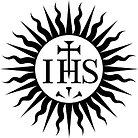Denis Diderot
Denis Diderot was a man in favor of the most radical and rapid form of change. He wanted a better and more liberal world which in his opinion could only be achieved through the elimination of royalty and the clergy. Furthermore he much like Voltaire believed that in order to change our ways of living and thinking it was necessary for us to break free from our complacency. Diderot developed these opinions over time after changes in religion, political identity and his overall personality. Through the years he grew to become more and more cynical believing that man was lazy and unwilling to change in the face of truth. Regardless of this dystopic mentality he made huge efforts to improve educational and academic standards and tried to remain a constructive critic and human being through the years. These choices eventually led to him dealing with the entity he criticzed the most: the Catholic Church. He was denied continuation of the encyclopedia and was continually targeted and slowed due to his heavy criticism of the church's establishment in and morals. Eventually his permission to finish his works was regranted and later in the same year he published his Encyclopedia. For Diderot this ability of the Catholic Church to slow and occasionaly attempt to halt the advancement of the enlightment disgusted him. The Church's attempt to stop him all together only confirmed his ideals about the establishment and only led him to grow more distasteful of the clergy's existence. In conclusion Diderot was in the very sense of the meaning a man of change, he expected others to self sacrifice for a greater good and overall wanted a better world. It is due to these founding pillars of his personality that he remains today one of the most important contributors to our society.
Fun Fact: Did you know one of Diderot's earliest works was a translation of Temple Stanyan's History of Greece completed in 1743?


